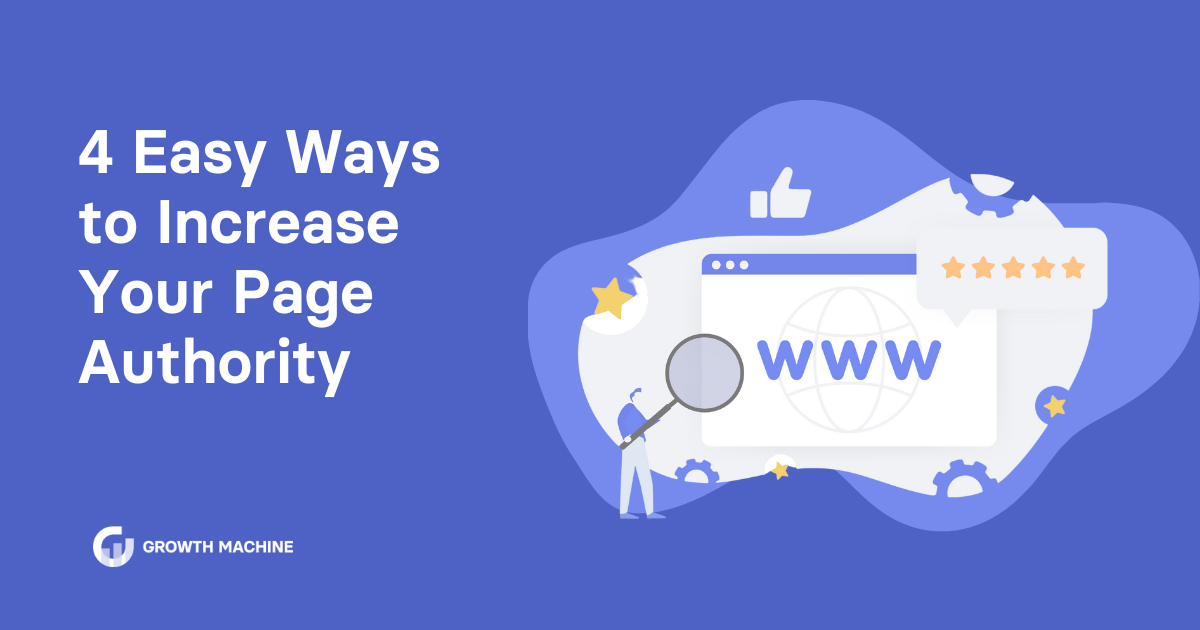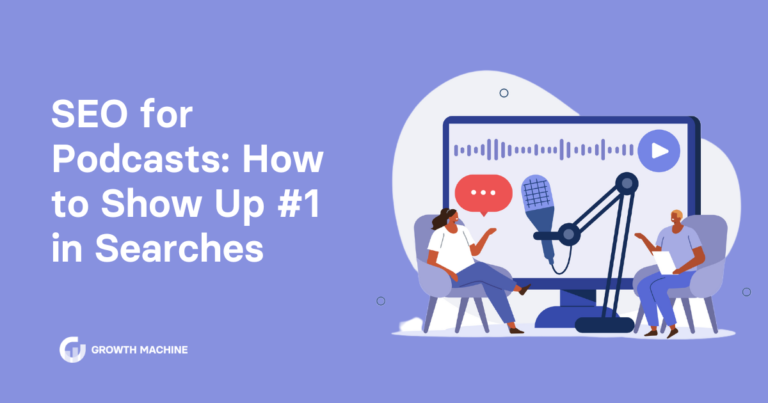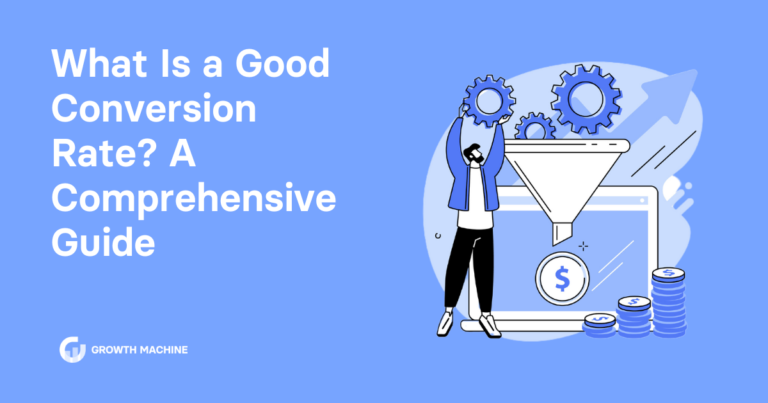4 Easy Ways to Increase Your Page Authority
When your potential customers search for information online, what are they looking for? They want content to be engaging, even entertaining, but there’s another ingredient that’s just as essential: authority.
Page authority indicates your site is a resource other experts would turn to for their own research. It measures the strength and ranking potential of a single page in reference to how thorough, backed up, and cited the information is.
Now, we’re not talking about coming across like a high school principal here. Besides, dry and pedantic content rarely ranks well anyway. Building up your page authority score is more about showing you have the goods to back up who you are and what you’re saying — but still ensuring the user has a good time reading your content.
So if you’re ready to supercharge your blog’s Google ranking, it’s time to learn more about how you can create content people trust as much as they enjoy.
Why Is Page Authority Important?
Page authority scores help businesses predict how every page on their sites will perform on search engine results pages (SERPs).
Like any other element of SEO, it’s just one part of a much bigger story. Still, a high page authority score (or PA score) indicates your page has a much better chance of ranking well than a low score would. As a matter of fact, page authority is a major input for Google’s algorithm PageRank (as well as its nofollow update).
Imagine you’re back in high school and want help on an upcoming homework assignment. Would it be better to go straight to your teacher? Or would you go to another student who seems to be as confused about the content as you are? Odds are you’d pick your teacher! They are the ones with the answers after all. The same goes for people on the hunt for content.
Most people want their favorite brands to be trustworthy. They want you to anticipate their needs before they can even articulate them themselves. Page authority is one of the main metrics you can use to track how well you’re doing on that front.
What Factors Weigh Into Page Authority?
Plenty of important factors enter into making a page authoritative. Some have to do with the content itself, while others relate more to how you link and (just as importantly) how other authoritative websites link to you.
These are just a few of the most essential factors to consider when it comes to boosting your page authority:
- Content relevance: Pages with content relevant to the topic at hand have a stronger page authority score. High-quality content is always a necessity when it comes to SEO, from a host of different angles. It plays into so many different ranking factors that you really can’t afford to ever phone it in on creating content.
- Domain authority: The overall strength of your domain also plays a role in individual page authority. Build an impactful and high-traffic brand in general, and the rewards will rain down on each of your individual pages. Just remember: Your domain authority score (or DA score) has an effect on your PA score, but they’re not the same thing.
- Link count: The more external links you have pointing to your page, the better off you’ll be when it comes to your PA score. When other websites treat you as an authoritative source, search algorithms will take their recommendation seriously.
- Link quality: Pages with more high-quality links generally have a stronger page authority score. In order to improve your link quality, try to get authoritative and expert-level sites to link to your content. Low-quality links from spam sites can have the opposite effect.
- Social media sharing: The more people share your content, the higher page authority score you’ll have. Likes and shares indicate people take your content seriously, and that means search engines will too.
How Do You Calculate Page Authority?
SEO software company Moz was the first to develop a page authority checker tool. To calculate the score, it takes dozens of factors into account, including the ones listed above. Key page authority metrics include high-quality external links, expert-level inbound links from other high-authority websites, and the domain authority of your entire website.
It then charts each page’s authority from one to 100 on a logarithmic scale (just a fancy way of saying a long-ranging, multifaceted rubric). Among other things, the company’s MozBar extension allows you to generate this type of score for any page you visit. Other prominent SEO tools provided by companies like Ahrefs and Semrush now allow you to quantify your page and domain authority as well.
4 Simple Steps to Increasing Your Page Authority
Increasing your page authority requires a multipronged approach. For one thing, any attempt to improve your page’s trustworthiness ranking should go hand in hand with a more wide-angle SEO strategy.
Engaging, viral pages are authoritative pages, and the same is true vice versa. But you need to capitalize on a variety of strategies in order to maximize each individual page’s full potential.
By utilizing these four simple steps, you can increase your page authority while improving your site on multiple other optimization metrics as well.
Step 1: Build Better Links
Effective link building is a must for increasing every specific page’s authority as much as possible. Include anchor text reflective of the content you’re linking to, whether it sends a user to another page in your archive or another authoritative site.
As you build a larger archive of material, you’ll be able to link to more and more relevant content on your website from each specific page. Not only will this make you look like more of an expert in the eyes of your potential customers, it’s also what’ll get you on Google’s radar for higher ranking.
Step 2: Get on the Radar of Authoritative Websites
While internal linking will help you establish credibility with search engines, coming up with a viable backlinking strategy will go even further to increasing your page and domain authority. To increase individual page authority and your domain rating overall, you’ll need to learn how to get quality backlinks from other reputable sites.
Early on, this might mean reaching out to other authoritative sites to see if they’d be willing to feature links to your content in their own posts. Consider starting with small to mid-range firms in a similar field before moving on to the top-ranking options.
Build up an archive of content you can use to impress like-minded businesses as well. Make a unique mark on the content in general, and try to attack it from a specific angle. That way, other sites will be far more eager to link to your expertise. After all, this sort of backlinking is mutually advantageous. You scratch their back, they scratch yours.
Step 3: Create Relevant and Optimized Content
As with SEO in general, never sacrifice on creating quality content for potential customers. Every single page of your site should be full of information conveyed in an authoritative and engaging way. Give your readers a reason to trust you, and they’ll generate the organic traffic necessary to keep you climbing higher on SERPs.
Your on-page SEO strategy will go a long way to boosting your page’s authority as well. It takes a lot of tools to rank as high as possible. If you utilize keyword research and other SEO strategies, your content will climb the ranks on Google and other search engines. Once it does so, it’ll start getting more hits. As this process continues to snowball, your site will become a trusted source of information for more and more people who visit it.
Step 4: Maximize Shareability
Organic traffic helps improve your page authority score, and widespread social sharing will help you improve your organic traffic. As a website owner, do your best to make your content as shareable as possible.
People share content when they think their own networks will profit from it somehow. Aim to create content people trust and love to read. Expertise and entertainment are not mutually exclusive. Also, make sure to include share buttons for all the major social networks on each individual page.
Page Authority Comes from an Effective SEO Strategy
In order for a web page to rank well on search engines, it needs to be as trustworthy and authoritative as it is fun to read. Search algorithms look for pages with a lot of internal linking to other reliable content, backlinks from other authoritative sites, and relevant, thorough content to recommend to users.
Your potential customers are on the lookout for the best options to meet their needs. In this day and age, many will think those options are always on the front page of whatever they just searched. With the right page authority strategy, you can be there when they show up.
Ready to increase your page authority and take your blog posts to the front page of any given search engine? Reach out to us and we’ll help you craft an effective SEO strategy to make an indelible mark online.


![How to Build a Digital Content Strategy: Step-by-Step Guide [2023]](https://www.growthmachine.com/wp-content/uploads/2024/06/How-to-Build-a-Digital-Content-Strategy-Step-by-Step-Guide-2023-768x403.png)




